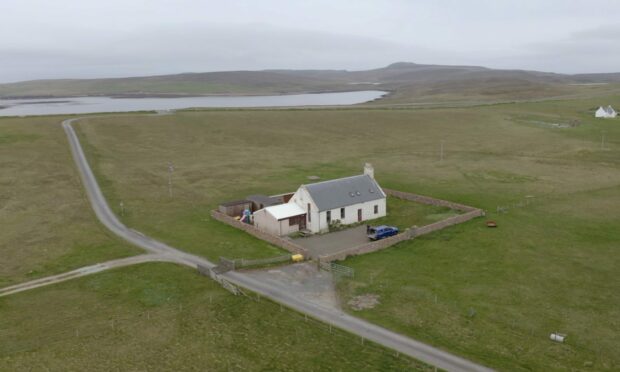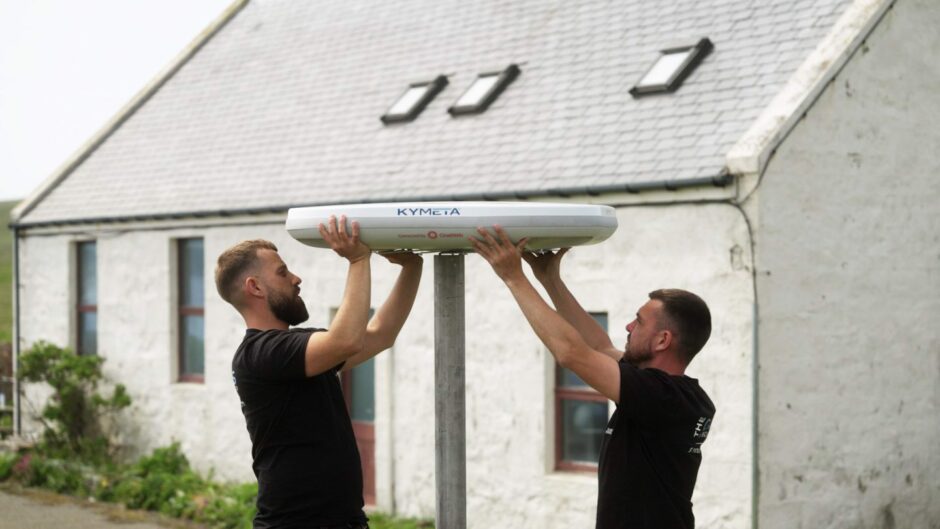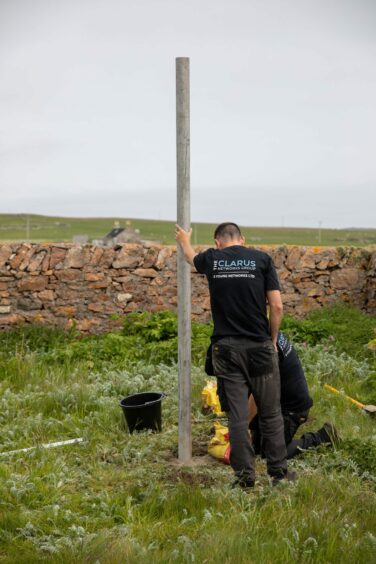A remote island in Shetland – with just seven permanent residents – is to experience high-speed broadband via a satellite for the first time tomorrow.
Papa Stour off the west coast of Shetland will be supplied with high-speed broadband as part of a UK Government initiative.
Officials behind the venture have announced the internet connection will go live on Wednesday, courtesy of Edinburgh-based Clarus Networks Group.
Residents will be able to connect to a broadband network at the island’s primary school building and use high-speed WiFi.
Councillor for Shetland West, Liz Peterson, spoke to BBC’s Good Morning Scotland about the current limitations of the island’s internet access.
“I’m extremely pleased that the UK Government has decided to implement this trial on Papa Stour, it’s one of our most beautiful small islands and our hope is this trial can be rolled out to other remote parts of Shetland.
‘Big step forward’ for a small rural community.
“Currently, many of the rural areas still have very poor broadband, so we’re absolutely delighted with this trial.”
She hopes the trial will “pave the way” for further investment for rural communities.
She added: “We want our smaller communities to thrive and good broadband is a part of modern life to help maintain populations and to attract more people to live, work and invest in Shetland.”
“This hopefully paves the way for further investment in better broadband services for other rural parts of Shetland.”
It is a big step forward for the small community as Papa Stour is the least populated of Shetland’s islands.
At its peak in the 19th century, Papa Stour’s population was around 380 people, supported by a strong fishing sector.
However, the population has declined, with just seven permanent residents on the island.
Papa Stour resident Andy Holt said: “In our connected age it’s gratifying to feel we are not forgotten. This will be of benefit for both residents and tourists in the years to come.”
The first stage in connecting more rural areas
The trial, which forms part of the UK Government’s wireless infrastructure strategy, is due to last two years.
The Alpha Trials aim to show how low-orbit satellites could be a solution when island locations and rugged scenery make cable installation and maintenance challenging.
Paul Coffey, chief technology officer at the Clarus Networks Group, hopes this milestone will form a framework in getting more rural communities connected.
He added: “Clarus has a proven track record of delivering connectivity to remote areas, and the network switch on at Papa Stour is a key milestone.
“Working with the government and Shetland Islands Council, this trial shows how satellite technology can be transformational, connecting families and businesses to new opportunities.
“We hope to work with the local council and government to use satellite technology to connect even more rural areas and find ways to bring fast connection into all island homes.”
Minister for data and digital infrastructure, Sir John Whittingdale, said: “Improving Papa Stour’s connectivity is a major milestone in our efforts to close the digital divide as it transforms the lives of the island’s residents and visitors.”




Conversation